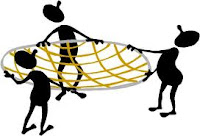Chris Deaver, a local musician, was senselessly murdered while working in a pawn shop in Florence, S.C.
I didn’t know him. I know his fiancé and have spent some time with his daughter. They are lovely. It is easy to imagine their laughter would have been like music to Chris. Now, though, their hurt and sadness coat them like scales they cannot shed.
I imagine myself and HB in their position and my eyes fill with tears.
Police named robbery the motive for the crime but reported the murderer had considered killing before this particular crime. He is a disturbed individual who does not seem to have even an elementary understanding of right and wrong. He is too young to be a “career” criminal, but last spring he made a choice and he is not a victim.
Every element of this story saddens. This editorial tries to pinpoint the source of this sadness. Everyone knows about the victims, and so this piece tries to turn the tables. It describes the courtroom and one person’s brief eye contact with the accused. Eye contact and the appearance of a slight smile on a killer’s face. Just 17 at the time of the crime, just 18 now, he is human after all, the writer says.
The sadness in the editorial is apparent, but the writer doesn’t adequately explain what is so sad. The comments on the editorial are equal parts outraged and the scathing. And they have every right to be.









